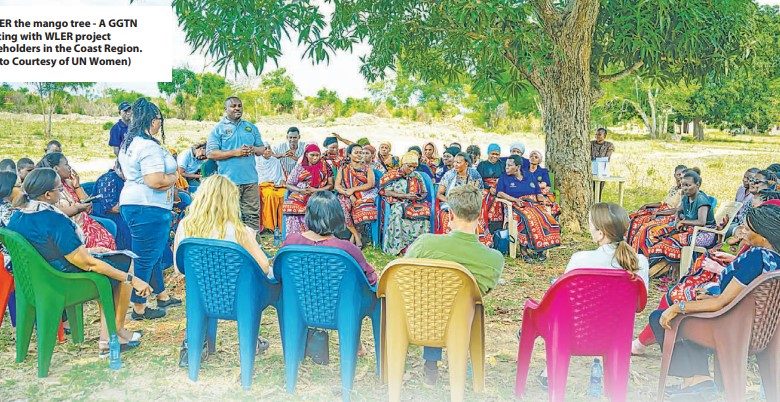Grassroots women changing the face of leadership

COAST REGION: UNDER the shade of a mango tree in Vigwaza, a ward in Tanzania’s Coast Region, Ashura Chewa listens intently as her neighbours discuss a pressing problem — the shortage of maternity beds at the local health centre.
For Ashura, joining the Grassroots Gender Transformative Network (GGTN) in early 2024 was a turning point. When her Community Development Officer introduced her to the idea, she was immediately drawn in.
“Nobody knows the issues our community faces better than we do,” she says.
“The GGTN gives us the platform to come up with our own solutions and mobilize others to act.” Her words were quickly put into practice.
Alongside other members, Ashura pushed for improved maternity services. Their advocacy bore fruit when the local government allocated funds for two new maternity beds. For mothers in Vigwaza, this was more than furniture — it meant safer deliveries and a renewed sense of dignity.
The Vigwaza GGTN soon expanded its focus. With training and solidarity, members began tackling violence against women and girls, raising awareness and supporting survivors.
“Cases of rape have decreased, more women are economically empowered, and many are now contesting for leadership roles,” Ashura explains.
She herself serves as a hamlet committee member under the special seats provision — proof that the change she is fighting for is also personal. In Gumba village, Coast Region, Zena Ufyole once doubted that leadership was within her reach. But encouragement from her GGTN peers gave her confidence.
She ran for Hamlet Chair against four candidates and won.
ALSO READ: Rehema’s recipe for self-made success
“I never imagined I would be a leader, but the training and conversations with other women gave me the courage to contest. Now, as Hamlet Chair, I’m focused on improving roads and access to safe water,” she said Her victory sparked a chain reaction.
Three other women in her community also won village council seats, ensuring that women’s perspectives would be part of decision-making.
Further south, in Mnyengeli village of Mt wara Region, Rukia Mohamed made history. In 2024, she became the first woman elected as village chairperson since independence, defeating three male rivals by 50 votes.
Her triumph was not hers alone. Seven other women in her village secured Hamlet Chair seats, giving women unprecedented influence over critical issues from education and health to agriculture and security. What began as small circles under mango trees is now part of a national shift.
The GGTNs, created under the Women’s Leadership and Economic Rights (WLER) project, bring together women and men to identify challenges, design solutions, and take action. Across the four target regions of Lindi, Dar es Salaam, Pwani, and Mtwara 417 members (328 women, 89 men) have been trained in participatory research, gender analysis, and advocacy.
These skills have turned everyday community members into effective leaders. By 2024, the results were clear 60 GGTN members won local government positions, from hamlet committees to village councils. The presence of women in these spaces is reshaping how communities view governance and gender equality.
“We were trained to advocate for women’s rights and challenge discrimination,” Ashura says. “For me, the most important lesson has been how to bring people together to create awareness, build unity, and work collectively for change.”
From Vigwaza to Mnyengeli, women’s leadership is no longer an exception, it is becoming the expectation. Communities are witnessing changes in service delivery, stronger action against gender-based violence, and greater attention to the needs of women and girls. And the momentum is spreading.
Ahead of this year’s national elections, more women are contesting seats at district council level, driven by the confidence and networks built at the grassroots. From the quiet shade of a mango tree to the noisy arena of local politics, women like Ashura, Zena, and Rukia are proving that leadership is not about titles but about service.





